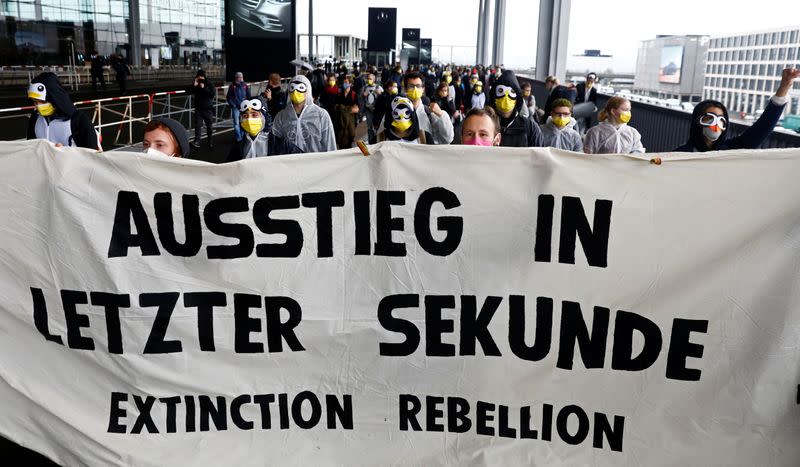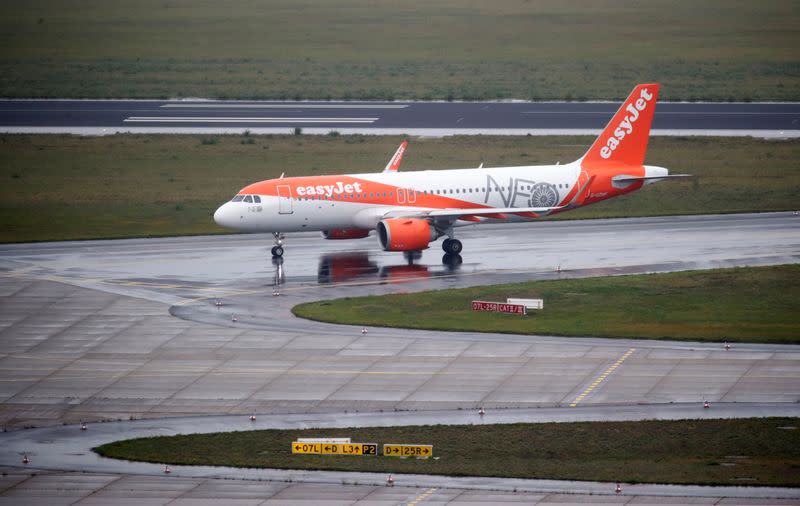Climate activists disrupt opening of new Berlin airport
By Klaus Lauer
BERLIN (Reuters) - Climate activists sought to disrupt the long-delayed opening of Berlin's new airport on Saturday, one gluing himself to the door of a plane, others scaling the terminal to hang placards and many crowding the building dressed as penguins.
The opening of the Berlin-Brandenburg Willy Brandt airport - to be known by its BER code - comes as the global aviation industry struggles with a dearth of travellers due to the coronavirus pandemic.
Construction on the new airport began in 2006 and it was originally due to open in 2011. But construction problems and technical issues saw the date pushed back repeatedly, a major embarrassment that dented Germany's reputation for efficiency.
The delays left Berlin relying on two outdated and crowded Cold War-era airports: Tegel, which served the west of the city, and Schoenefeld, which was once Communist East Berlin's airport and which has been integrated into the new facility.
"The time for jokes about the BER must be over now," said Transport Minister Andreas Scheuer, adding that the country needed to start a new "economic miracle" like the one seen in Germany after World War Two to recover from the pandemic.
The first plane to land was an Easyjet flight, a special service that took off from Tegel on the other side of the city. That airport will close next weekend. A Lufthansa plane landed minutes later.
Lufthansa CEO Carsten Spohr told a news conference the crisis in the industry would last a long time: "We must be realistic. It will take until the middle of the decade at the earliest until we reach the level of 2019 again."
A video distributed by the Extinction Rebellion environmental group showed a protester gluing himself to the door of a Pegasus plane, while other demonstrators hung a sign from the steps to the plane reading: "We want to live".
Earlier, dozens of activists - many dressed in penguin suits - protested inside and outside the new airport carrying signs with slogans like "Flying is so yesterday" and "BER opening cancelled due to the climate crisis".
Berlin's airports expect just 10 million passengers to land in the German capital this year, compared with 36 million last year. BER's current capacity is 40 million.
Because of the pandemic, Easyjet is cutting its fleet based in Berlin to 18 planes from 34 and cutting 418 out of around 1,500 employees, while another 320 staff will work shorter hours until next June.
The crisis is also increasing the financial woes of the new airport, which is owned by the federal government and the states of Berlin and Brandenburg, and cost nearly 6 billion euros ($7.1 billion), roughly three times the initial budget.
(Additional reporting by Ilona Wissenbach, writing by Emma Thomasson; Editing by James Drummond and Christina Fincher)




